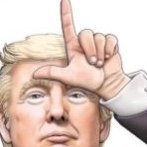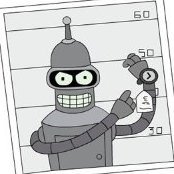-
Recently Browsing 0 members
- No registered users viewing this page.
Announcements
-
Topics
-
Latest posts...
-
11
Now I'm getting older: I worry that my aging brain is making me feel crazy. (You too?)
I have improved by the years, and stopped doing what others thought was crazy, but normal in my eyes. Still, I know I'm the last to know If I turn crazy by age. That's the nature of it. -
23
158 dems vote against bill to deport illegals, who commit sex crimes
Look at Europe a <deleted>e show it’s happening all over -
18
New Rules Restrict Street Vending to Low-Income Thais Only
That's the genius of it, the illicit payments you make to go over keep you under the 300K limit. -
5
Homeless Woman Using Illegal Drugs Openly on Pattaya Street Raises Concerns Over City Image
"Tarnish"? I beg to differ, she is the perfect symbol for Pattaya, they should put this picture on a billboard when welcoming people to the family-friendly city. -
20
Thailand Introduces New Bill to Regulate Cannabis While Keeping It Legal
2% potency. How do they expect all the shops to test for this with every type of cannabis they sell. This new law makes it easy for the policing agency and government to walk in and make fines for any amount up to 100k easily. -
23
158 dems vote against bill to deport illegals, who commit sex crimes
instead of people killing each other americans need to kill the politicians. The only problems with the jan 6 riot was they were too peaceful- 1
-

-
13
Trump vs. Taylor Swift: A Battle He’s Bound to Lose
But he is the same as most politicians nowadays. Soon to be replaced as his policies become more meaningful to him but not anyone else. There you go I've helped you with your post. Sorry to appear sexist but I thought them/they might be too woke! -
5
Homeless Woman Using Illegal Drugs Openly on Pattaya Street Raises Concerns Over City Image
not sure which is worse, the urinating and crap or the exposed drug use .... I thought Pattaya was a pristine gold family resort, the family would need to be careful and not step in anything she left near the pipes. -
13
BBC Admits Past Lapses in Addressing Celebrity Misconduct
Loss of reputation sentence, I agree with. the BBC is worth it but MUST enforce effective monitoring and standards on ALL staff. Being a CREATIVE, is not grounds for allowing behaviour that is morally & criminally wrong. You noted the horrendous Saville case as one example; this Hugh Edwards case is another - his sentence is FAR too low. I am not far right, in case anyone queries this, but think that standards & enforcement should be across the board - this is what many in the upper levels of British society and the BBC as a reflection of that fail to adhere to e.g. BBC, Boris Johnson, Mohamed al Fayed, etc.. the list is long of the Elite acting badly and getting away with it. -
5
Homeless Woman Using Illegal Drugs Openly on Pattaya Street Raises Concerns Over City Image
Puts the tourists-peeing-in-the-sea story in the shade.- 1
-

-
13
Trump vs. Taylor Swift: A Battle He’s Bound to Lose
She’s your next president, you better pack your bags , maybe you can catch a lift with Trump as flees to Venezuela -
5
Melania Trump Defends Nude Modeling: A Celebration of the Human Form
Too bad she won't sleep with him anymore. -
5
Strengthening Ukraine’s Defense: The Path to Lasting Peace
The original article said, "Preventing Putin from winning the peace requires more than promises." Which means preventing the aggressor from achieving any perceived gain from their hostile invasion of a sovereign state and the return of all Ukrainian and Russian lands to the rightful power. If Ukraine were to be used as a proxy to destroy Russia, then the West would have helped rearm them BEFORE an invasion took place and then facilitated the invasion of Russia. Russia is destroying itself at the moment. -
5
Melania Trump Defends Nude Modeling: A Celebration of the Human Form
Her background is a bit cloudy. As transactional as Trump is, it is very possible he hired her as an escorts. No proof, just speculation. Nothing wrong with that, just saying. Some guys have the courage to admit it, some don't. What is more significant, is the degree to which she dislikes him.l now. She slaps away his tiny hands, she won't ever touch or hug him, and it is likely they have not been intimate for a long, long time. Perhaps that answers why he would be hanging out with Looney Loomer. Yikes. I cannot even imagine what it would be like to live with a woman who is dislikes and disrespects you. Though, she has ample cause for it. -
13
Trump vs. Taylor Swift: A Battle He’s Bound to Lose
She has the appeal now. But she is the same as most singers nowadays. Soon to be replaced as her songs become more meaningful to her but not to anyone else.- 1
-

-
.png.3b3332cc2256ad0edbc2fe9404feeef0.png)











.thumb.jpeg.d2d19a66404642fd9ff62d6262fd153e.jpeg)
Recommended Posts
Create an account or sign in to comment
You need to be a member in order to leave a comment
Create an account
Sign up for a new account in our community. It's easy!
Register a new accountSign in
Already have an account? Sign in here.
Sign In Now